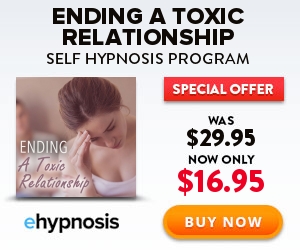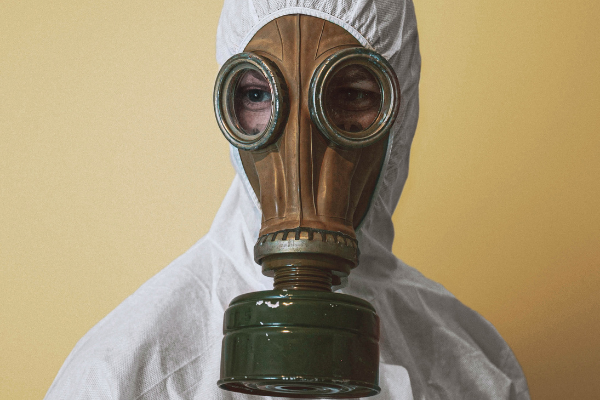
Some toxic relationships are obvious. For example, most of us would see a marriage where someone hits their partner as unacceptable and would think a friendship where one party takes support without giving any is unhealthy.
However, not all toxicity is as easy to recognize, and sometimes harmful dynamics develop so slowly you don't realize what's happening.
What should you do, then, to accurately assess whether a relationship is toxic?
In this guide to toxic relationships, we'll help you understand what such relationships look like - and why they aren't always exactly what you would expect.
We'll explore what a toxic relationship actually is, and the kinds of negative impacts it can have on you, before moving on to look at three major signs that commonly crop up in toxic relationships.
Finally, we'll consider how you can help to mend a bad relationship - or disentangle yourself from a relationship that is not working.
What Is A Toxic Relationship

Relationships can be mutually toxic, but it is more common to see power imbalances - i.e., for one partner to be prioritized and the other made to feel small.
It is possible to work on these types of relationships - when we understand why we behave in harmful ways and are open to change, we can develop entirely new ways of relating.
However, if someone is unable or unwilling to see the toxicity in their actions, the consequences can be devastating.
Damaging Effects of a Toxic Relationship

Some of the most significant impacts include the following:
- Trust issues: Toxic relationships teach us that it isn't safe to be close to people, so we may start to withdraw in order to protect ourselves. And since we all need intimacy and support, we can be lonely when we struggle to trust in this way.
- Exhaustion: Toxic relationships activate our "fight or flight" systems, and your body and mind can become drained by the constant flood of stress hormones that result.
- Negativity: It's hard to see anything positive in the world when you're in a toxic relationship. Things that used to make you happy may now leave you cold, and you may struggle to anticipate anything good happening in your future.
- Low self-esteem: When someone treats you badly, it's easy to begin thinking that you don't deserve any better. This effect is multiplied if your partner is explicitly cruel, saying unkind things about your skills or the way you look.
- Lack of growth: While a supportive partner is like a teammate and a cheerleader, a toxic partner encourages you to stay limited and infects you with doubt about trying new things.
- Poor health: Studies show a link between toxic relationships and an increased risk of diabetes, high blood pressure, and heart disease.
- Distorted view of love: Toxic partners can be very convincing, and you may end up believing that control and conflict are the same things as love.
Signs Of A Toxic Relationship
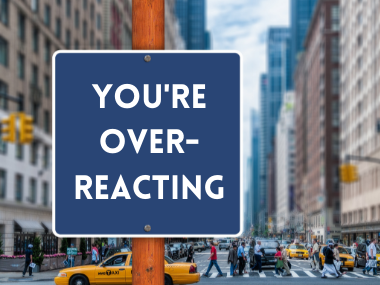
Every relationship looks different, but these three features are arguably the most common.
Some relationships obviously display most of these signs, but toxic dynamics can be more subtle - even one sign is an indicator that there's something unhealthy going on.
As you look at the signs, think about your partner's behavior, but also your own. In addition, think about how you behave together, as sometimes toxicity is mutual.
Controlling Behaviors
Controlling behaviors come in many forms. Your partner may frequently question you about where you are, or call you to check that you are doing what you claimed - almost like they're trying to catch you out.
They may respond with anger or high levels of distress if you don't immediately pick up the phone or respond to messages, and they may even try to exert some control over the kinds of people you spend time with socially.
And at the extreme end of the spectrum of controlling behaviors, you'll find gaslighting - times when your partner outright denies things they have said or done, suggesting your perspective is warped.
Ignoring Your Own Needs

By being louder, more aggressive, or simply more confident in their own worth, one partner may end up dictating everything about how the relationship works.
Meanwhile, if you are the partner whose needs are rarely met, you can become bitter and resentful over time, which feeds a new, further type of toxicity into the relationship.
For a relationship to be healthy and sustainable, both people need to advocate for their own needs and be genuinely interested in the needs of their partner.
No Self-Care
Relatedly, a toxic relationship may lead you to stop taking care of yourself properly. Almost all of your energy may go into keeping your relationship afloat and dealing with any conflicts that arise.
As a result, you may have very little left for yourself. This can have disastrous effects on your well-being - the importance of self-care is greater than most of us realize.
You will likely end up physically tired, with a short fuse and low moods. In addition, your self-esteem can suffer, as by not caring for yourself you give yourself the subconscious message that you are not valuable or important.
Healing a Toxic Relationship

If both parties are committed to the relationship, open to working hard, and aware they may need to learn uncomfortable things about themselves, then dramatic shifts can occur.
Couples therapy is one helpful avenue to explore in such cases.
But regardless of whether you're in therapy, what needs to change, exactly?
Here are three major shifts that will help you and your partner turn a toxic relationship into a mutually supportive one.
Practice Communication
The importance of communication cannot be overstated. As you discuss difficult topics, try to remember to be kind to each other. Pay attention to the words you use, and the tone you speak in.
Try to resist the urge to make jabs at each other, but do speak honestly about what isn't working for you in the relationship. There are lots of tools you can use to improve communication.
For example, you might take turns speaking, and after each of you speaks the other might try to reflect back a summary of what they heard. This helps check to mean and also conveys interest and empathy.
Stop Dwelling On The Past
As noted above, moving forward will naturally involve talking about past events and how they have affected you.
However, don't dwell - use these reflections to give you a template for what you want a positive relationship to look like, rather than as an exercise in point-scoring.
Remind yourselves and each other that you are a team working toward a better future, and that you share a commitment to improving things. When you do talk about the past, have a clear goal in mind that isn’t just rumination.
Start Understanding Rather Than Blaming
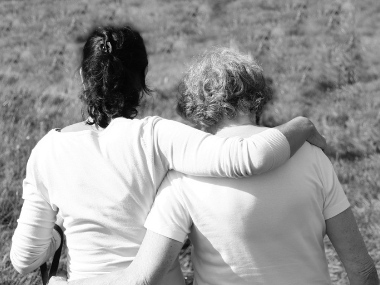
You may both be entrenched in your own feelings, experience, and perspective, lashing out and blaming each other for the thing you don't like.
Part of learning to be more considerate to each other is shifting toward trying to understand instead of blame.
For each thing, you discuss, challenge yourselves to see the other side of the issue.
Why, in other words, did your partner act as they did? What were they feeling?
For example, perhaps what looked like cruelty was motivated by insecurity and fear.
Ending A Toxic Relationship With Hypnosis
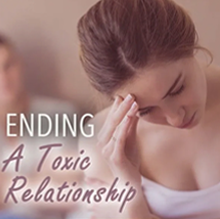
And when someone you love doesn't seem willing or able to have a healthy relationship, it's likely time to start thinking about leaving.
This is a painful, difficult process for many, and you may find it very hard to walk out the door even if you genuinely want to. That's where our self-hypnosis program for leaving such relationships can help.
By tapping into your subconscious, we help you change your perspective and let go of something that is no longer working for you.
